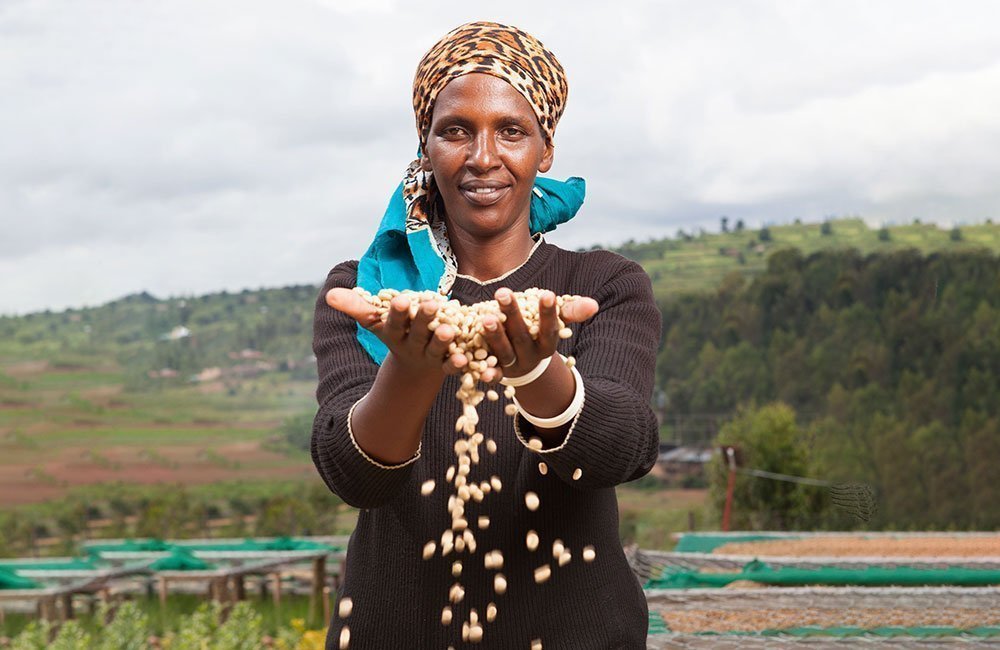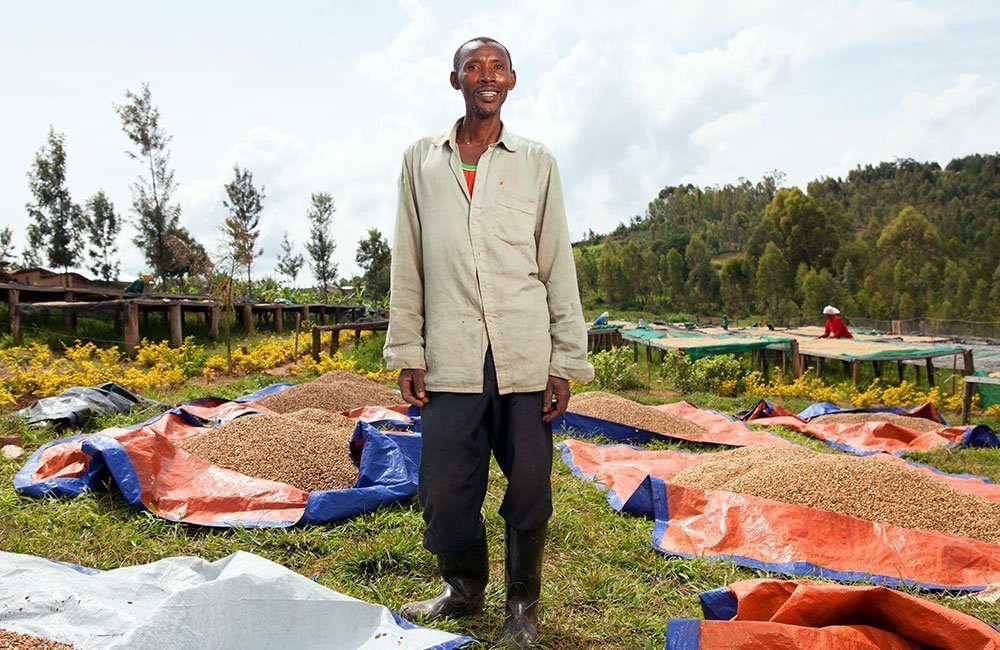
Café de la ladera del monte Huye al sur de Ruanda
Situada en la ladera del Monte Huye al sur de Ruanda, esta estación de lavado privada es propiedad de David Rubanzangabo. David es una especie de filántropo y se preocupa sinceramente por los pequeños productores que le entregan sus cafés para procesarlos.
Desde que se fundó en 2011 Huye recibe cafés de unos 1330 productores en la temporada de cosecha, quienes llevan sus frutos de café recién cosechados a uno de los 26 puntos de recolección en la comunidad Huye, donde un camión visita a diario para recoger café durante la temporada de cosecha.
Por lo general, los agricultores cosechan en pequeñas parcelas de apenas un cuarto de hectárea, con unos 200 árboles, los cuales dan unos cuatro kilos de cerezas por árbol, por lo que cada finca solo produce aproximadamente 2 sacos de café.
Los árboles son todos de la variedad Bourbon, que, junto con una altura que ronda desde los 1.600 a 2.300 metros sobre el nivel del mar, aporta complejidad y sabores interesantes en taza.
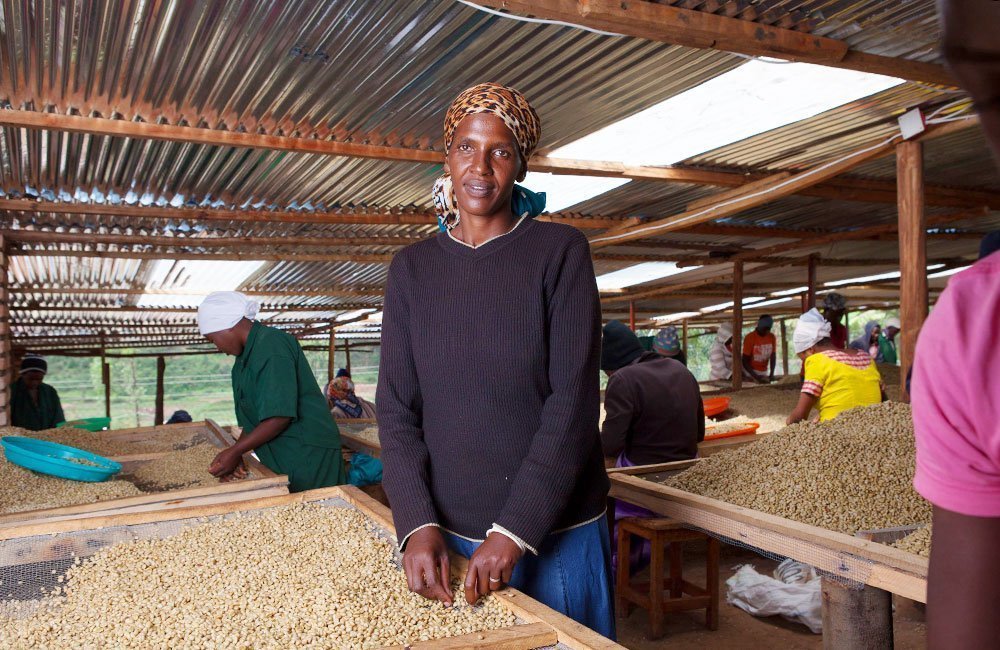
To encourage consistency of quality, David awards members whose coffees carry the highest cupping scores with the prize of a cow (40 members each won one) or a goat (60 winners last year).
A cow makes a huge difference to the lives of a family since it will provide milk for around 6 years and a constant supply of organic fertilizer for the coffee trees.
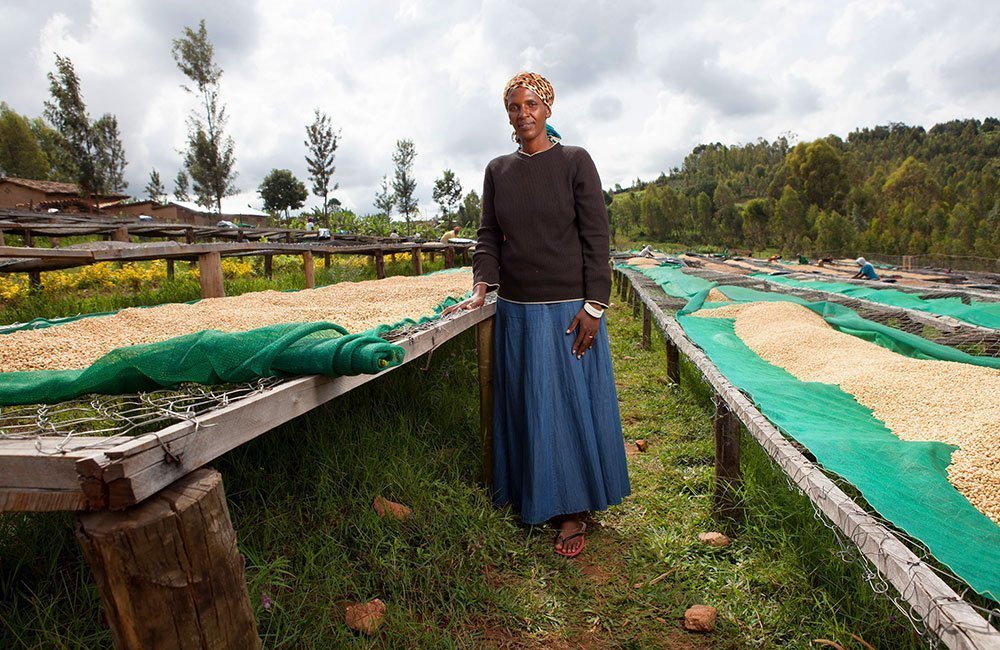
hen it is put into the receiving tank where inferior floaters are removed. The denser, high quality cherries are then pulped in a Penagos disc pulper before entering a concrete fermentation tank where they are held for 12 to 15 hours.
It is a dry fermentation process meaning that extrawater is not added.
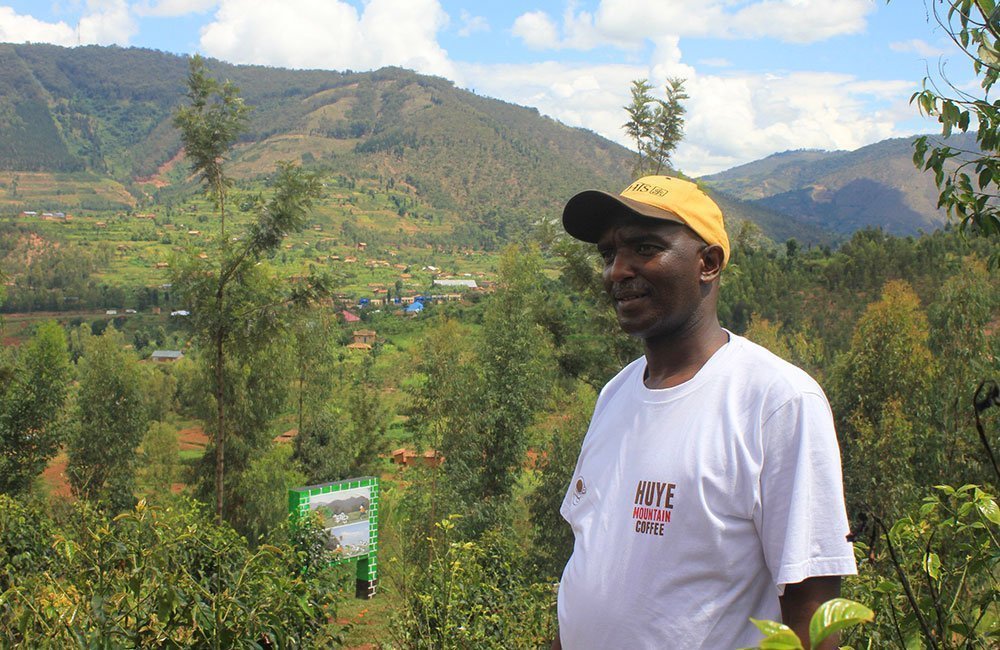
This process is repeated a further 4 times to ensure the coffee is clean before being channelled through water (when further floaters are removed) and is then transported to raised beds for drying.
Initial drainage drying is under shade as the coffee could be damaged at this point if it is exposed to too much heat. Then it is taken to the drying tables in the sunshine where the beans are diligently sorted by hand to remove defects, and turned it regularly.
This can take between 15 to 20 days.
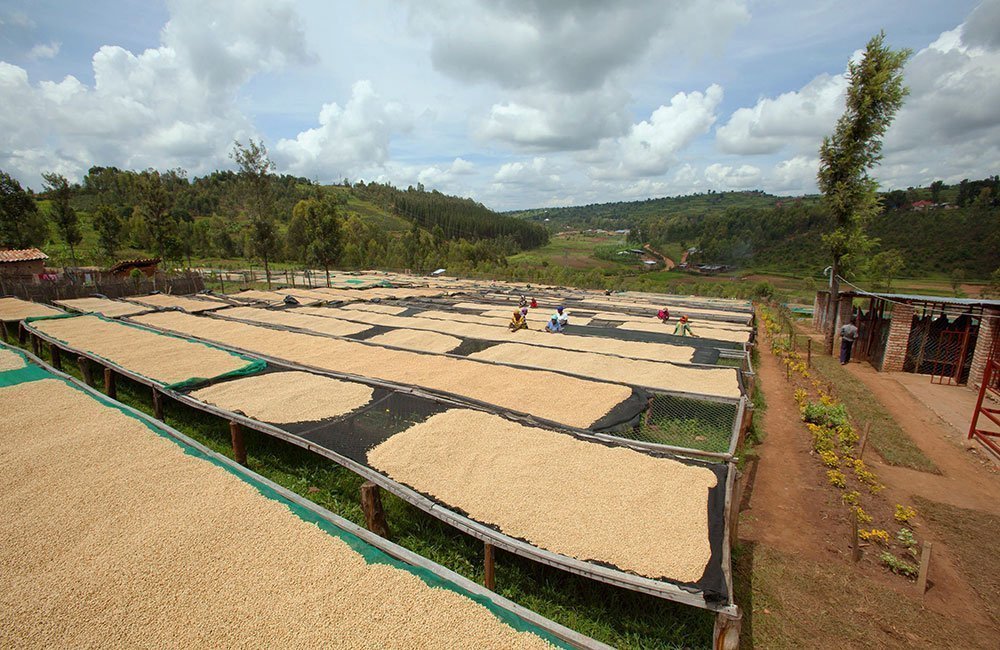
Gravity sorting machines are also used to remove broken beans and foreign bodies before the coffee is finally packed into 60kg bags (lined with Grain Pro) and containerised for export. The coffee is trucked to either Dar es Salaam in Tanzania or Mombasa in Kenya, where it is shipped to our roaster clients around the world.

